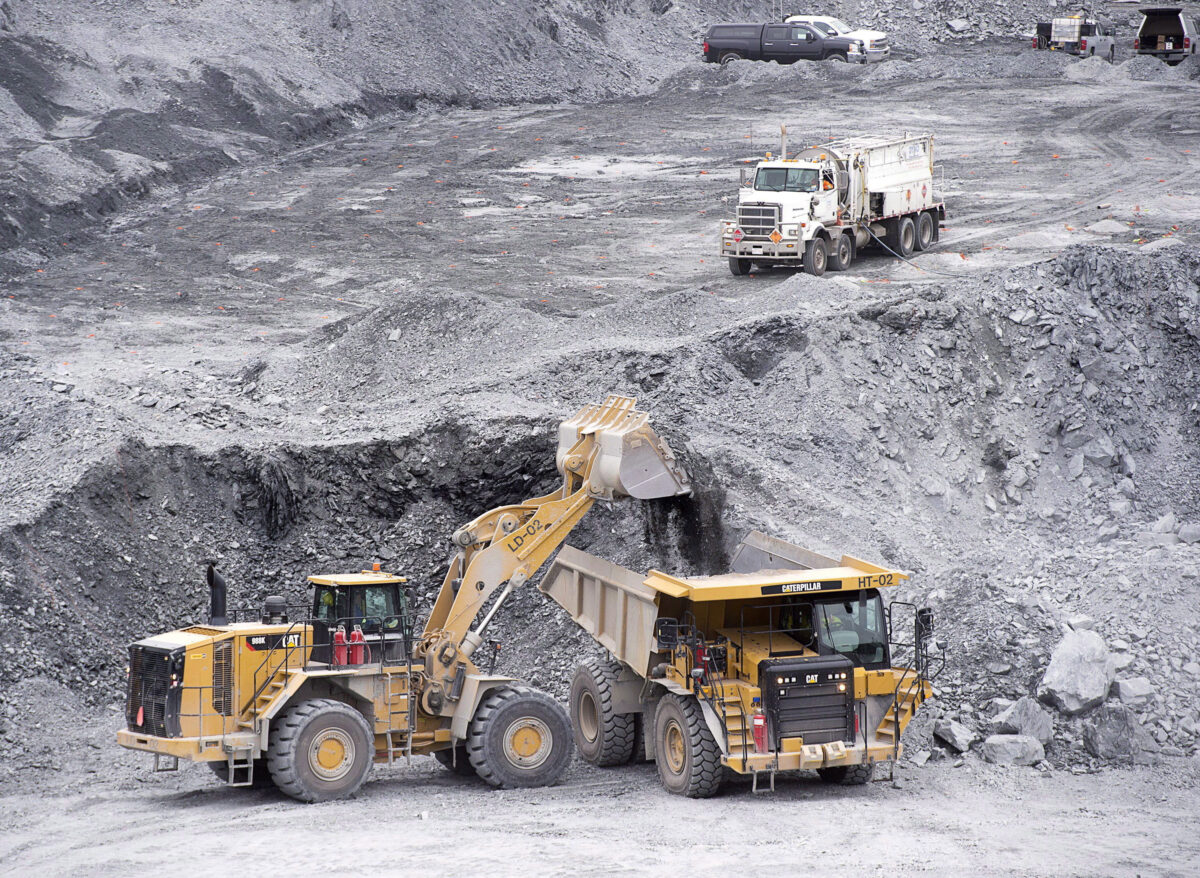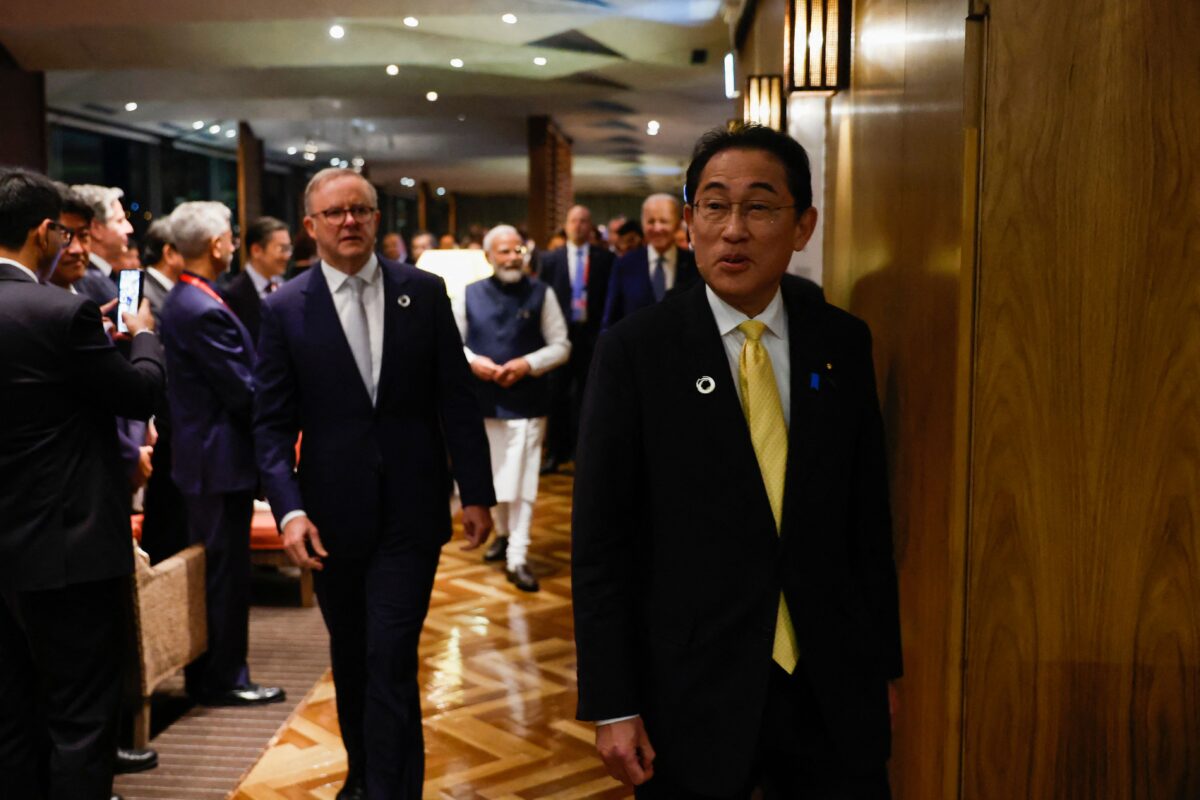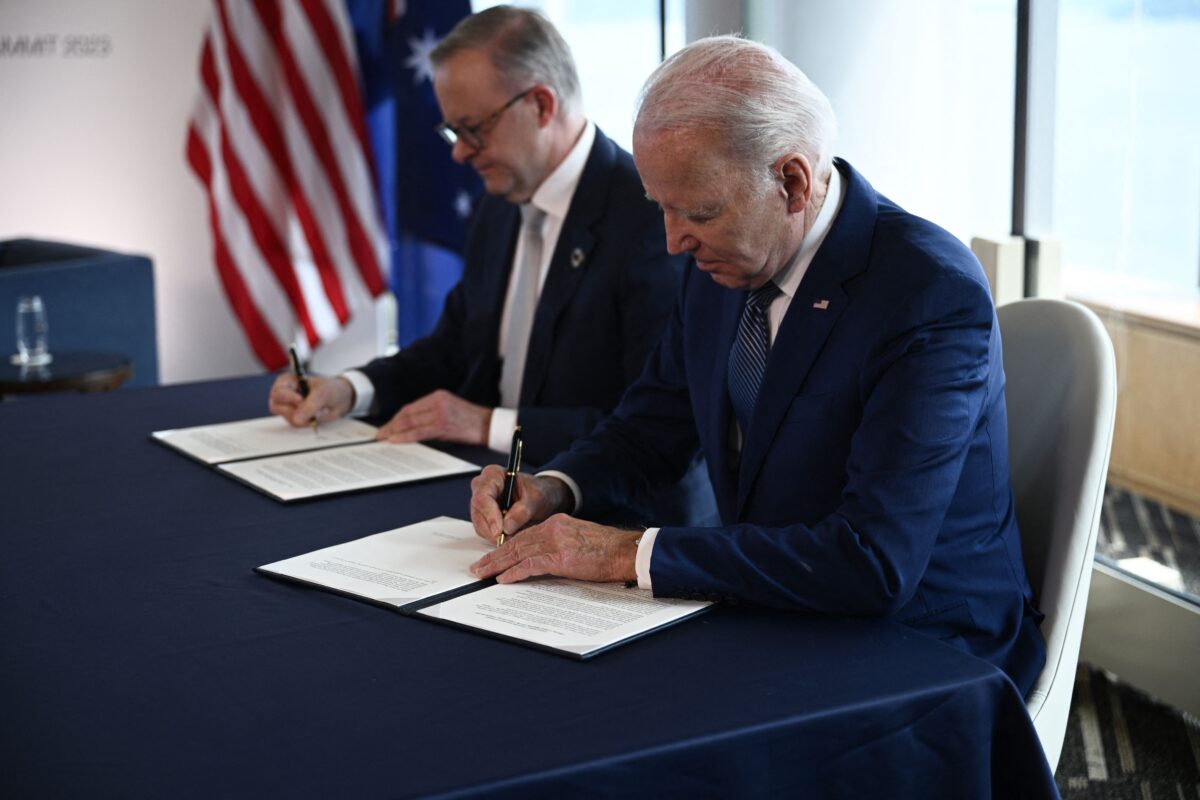Commentary
Signed bits of paper abound at international conferences. Serious-looking leaders signing their names to documents that would never pass the examination of a first-year law student abound.
Statements of intent, flowing phrases, and wonderful words, which at the end of the day are neither enforceable nor meaningful, tend to go from headline to dustbin with great rapidity.
Time will tell if it will be any different with the activity on the sidelines of the G-7 in Hiroshima, which saw the signing by U.S. President Joe Biden and Australian Prime Minister Anthony Albanese of a document entitled “Climate, Critical Minerals, and Clean Energy Transformation Compact” (the Compact).
It is described as the third leg of the U.S.- Australia alliance. Without stating what the other two legs might be, President Biden left it for others to guess. Presumably, he meant ANZUS and AUKUS.
It is difficult to comprehend how the Compact can be provided with the same status as the former two agreements. One prays this is not indicative of how the focus has shifted from military preparedness to meet the real threats emanating from Beijing.
The Compact is designed to encourage U.S. investment in Australia’s critical minerals sector and help with the development of its fledgling hydrogen sector.
Foreign investment from friendly players is vital to Australia’s economic growth, and capital input is vital to the harnessing of Australia’s minerals. This is even more important and strategically so when developing critical mineral resources.

Expansion and diversification of supply chains, as noted can only be a good thing between trusted allies.
The Compact also provides Australian companies access to the $555 billion Inflation Reduction Act in the United States. (Yes, this super fund is actually named “inflation reduction.” The U.S. spends money to reduce inflation!) In fact, it has been described as a climate investment juggernaut but apparently dares not speak its name.
If the signed compact on which the ink has hardly dried is the third leg of a stool, it would make for a particularly wobbly and unstable stool.
Are Our Resources Cataclysmic or Not?
To classify the Compact as a third leg was hopefully an over-exuberant flourish of hyperbole to breathe some significance into the occasion. Yet the president’s heavy reliance on notes for all occasions might suggest the reliance on rhetoric is the work of spin doctors.
But President Biden was not the only user of hyperbole. Australia’s prime minister breathlessly told us about the existential threat of climate change and how its acknowledgement was the entry fee to credibility in the region.
So watch Australia and the United States expend their energies on denying themselves cheap and reliable energy, thereby weakening their economies and thus military capacity. While they enjoy fiddling with electric vehicles (largely made in the communist dictatorship of China using Australia’s coal and iron ore), China and Russia continue the assault on their neighbours and concentrate their efforts on domination at the expense of freedom-loving democracies of the world.
Most observers would also have noted the forked tongue approach of Australia’s prime minister, taking the opportunity while in Japan to assure Japanese industry and the Japanese Prime Minister Fumio Kishida no less that Australia would continue to be a reliable supplier of coal and iron ore.

The use of these commodities apparently will have a cataclysmic impact and threaten our very existence if used in Australia, yet if shipped with the aid of thousands of tonnes of bunker fuel to Japan, they transform themselves.
The Australian prime minister is sufficiently awake, as opposed to woke, to recognise that without these sales, the Australian economy would be threadbare and leave a vital military and economic partner exposed as well—Japan being a cornerstone of the QUAD.
Let’s See Some More Resolve, Please
Talking of which, the cobbled-together communique from the QUAD meeting showed a lack of detail and resolve. Referring to issues in our region and the need for rules to be followed, the communique could not quite bring itself to mention the culprit or perpetrator to which certain unacceptable activities were being ascribed.
Thankfully the G-7 was more robust.
The effort and publicity afforded the Climate Compact compared to other statements highlighting Beijing and Moscow, where the focus is. Their combined activities are not referred to as “existential threats” to the existence of democracies like Taiwan and Ukraine. And an understanding of such threats is not, it seems, the “entry fee” to credibility in the region.
The region of which Australia’s prime minister spoke, in case he needs reminding, is busily building new coal-fired power stations using Australian coal.
If they swallow the prime minister’s Kool-Aid about “existential threats” and “entry fees”, he may find that Australia may face an existential threat to its economic well-being, thus prejudicing Australia’s capacity to pay the entry fees for AUKUS and the QUAD.
The Climate Compact, while on its face beneficial for Australia, there is a genuine concern that it has detracted from the genuine military threats at the region’s doorstep.
Views expressed in this article are the opinions of the author and do not necessarily reflect the views of The Epoch Times.


















































